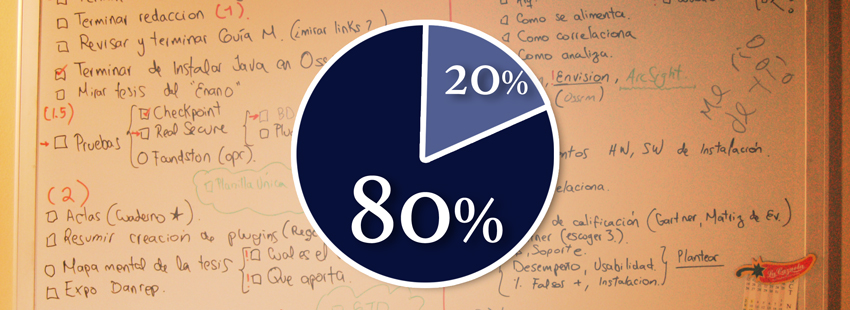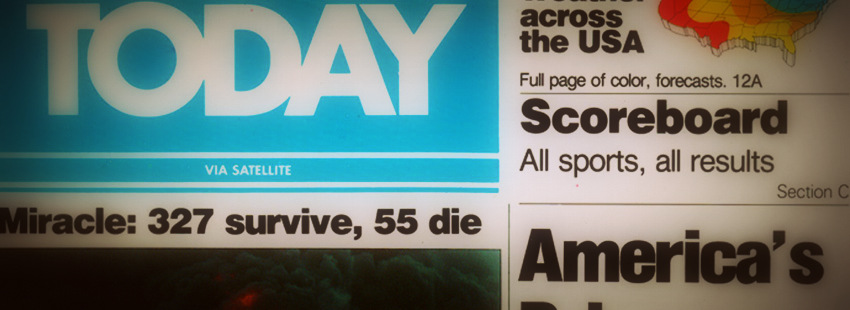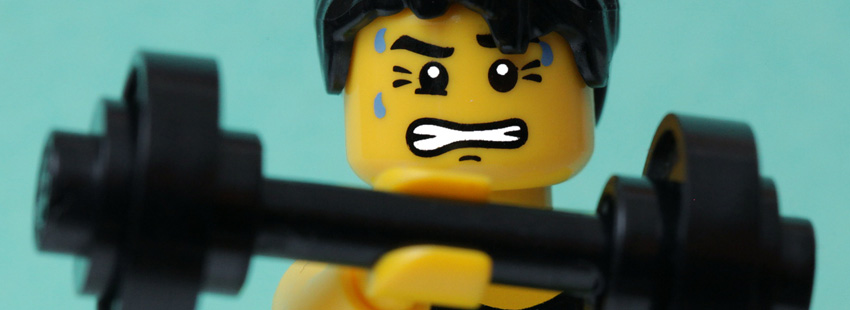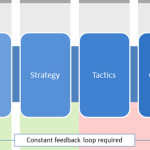Do you use a to-do list? Good. Does it ever get shorter? If you’re like me – not really. My to-do list is long and it seems to get longer all the time. But I’ll come clean and tell you right now that, as important as productivity is, I’m never going to finish it. I’m not even going to try. Why? Because the effort just isn’t worth it. I look at my to-dos all the time, and every time I look at my list, I consider what my goals are, what the context is around me, and I start to assign priorities to my tasks. Many tasks never get done. They were born as a fleeting thought. Potentially good ideas that came about in relation to something else. The tasks took a little breath, survived long enough to make it onto my list, but things changed, projects moved on, now they’re tagged as “low priority”, and in a few months they’ll probably be deleted. To-dos can only survive in low-priority mode for so long before their sheer existence causes me more annoyance than their eventual potential is worth.
Read moreBecome More Productive with these 9 Tips for Better Sleep
by David Folkerson on May 22, 2015 , No comments“How did you sleep last night?” That’s a question I’ve been asking my wife a lot lately. She’s pregnant, you see, with a little over a month left to go, and her body is less and less her own. She wakes up and can’t go back to sleep, sometimes for hours at a time, and she doesn’t know why. Some literature says it’s simply nature’s way of getting us ready for recurring, ongoing, sleep deficiency with a newborn baby.
Recurring, ongoing, sleep deficiency… lovely.
So you can understand if the topic of sleep has been on my mind a lot lately. I know how important the quality of sleep is to your health, mental acuity, productivity, and general happiness (for a great read on the theory that supports this, see John Medina’s Brain Rules). I’ve battled insomnia over the years, and I’ve spent many nights counting the hours of sleep I would get – if I got to sleep now – until my alarm would go off. “How can you fall asleep so soon?” I would silently ask my wife as she lay there in blissful dreamland, in her pre-pregnancy days. I want to know the secret!
Unfortunately, there is no secret (at least, none that has yet been discovered). Some of us are simply tuned differently. However, there are some things you can do to make sleep as conducive as possible. Read on for nine tips that have been proven to help.
Read more9 tips for the shortest and most productive meetings possible
by David Folkerson on February 28, 2015 , No commentsI have a friend who told me he regularly has to sit through two-hour long weekly team meetings. I didn’t know whether to laugh or cry with him. Such a massive investment in time and money. Put your typical team of 10 into a boardroom for two hours, and that meeting has just cost the company about $1,000 in wages. Keep it up for a year, and the company is down about $50K. And that’s just one team. It is unlikely that this company generates sufficient return from these team pow-wows to merit such frivolousness with employee time. Conducting good meetings is an important skill. Here are some tips for keeping them as short and as productive as possible.
Read moreHow compelling are your visuals?
by David Folkerson on February 21, 2015 , No commentsI’m sitting here, in the middle of the room along with the rest of this disappointed audience, and I can’t read a single thing on the presenter’s PowerPoint slides. Someone next to me whispers: “How big is that font, anyways? Size 6?” “It doesn’t matter,” I reply. “He’s just reading his slides word for word.”
Read moreDesensitize yourself to public speaking anxiety
by David Folkerson on February 14, 2015 , 3 commentsBill told me that the thought of presenting put razor blades in his stomach and rubber bands around his chest. It was getting harder and harder to breath. I said, “Bill, your anxiety is normal, but you can actually desensitize yourself to it by just doing more and more presentations.” “How can I desensitize myself to public speaking,” he said, “when I’m too nervous to even get started?”
Read moreUse a human helper if you have no handheld clicker
by David Folkerson on February 7, 2015 , 1 commentOne of the most critical success factors when presenting to an audience is good eye contact. That’s why handheld clickers are so important – you can advance your slides without ever breaking that all-important audience connection. So what do you do if you lost your little remote?
Read moreEmbrace your vocal range for increased attention
by David Folkerson on January 19, 2015 , 2 commentsIt is far too easy to slip into a monotonous speaking tone when conducting meetings or speaking to an audience. Perhaps you do this in an attempt to control your nerves, or to appear more serious and in control of your material, but you’re not a boring person, so don’t speak like one.
Read moreUse analogies, similes and metaphors to communicate more effectively
by David Folkerson on January 12, 2015 , No commentsThere are few communication techniques as effective and powerful as analogies, similes and metaphors. This goes double for oral communication, since the receiver does not have the freedom to pause you mid-speech and reflect on what you’re saying.
Read moreCombat anxiety with the thermometer visualization technique
by David Folkerson on December 20, 2014 , No commentsI’m happy that I get anxious before delivering a big presentation. It means that I’m excited about what I’m about to do. But I don’t like feeling anxious. Too much anxiety can be crippling. I like to use what I call “the thermometer visualization technique” to help manage this kind of anxiety when speaking in public.
Read more









 Senior communicator | Team leader | Web and social media expert | Strategist.
I love making new professional acquaintances. Reach out if you want to talk communications, marketing, or ultimate frisbee.
Senior communicator | Team leader | Web and social media expert | Strategist.
I love making new professional acquaintances. Reach out if you want to talk communications, marketing, or ultimate frisbee.






Recent Comments